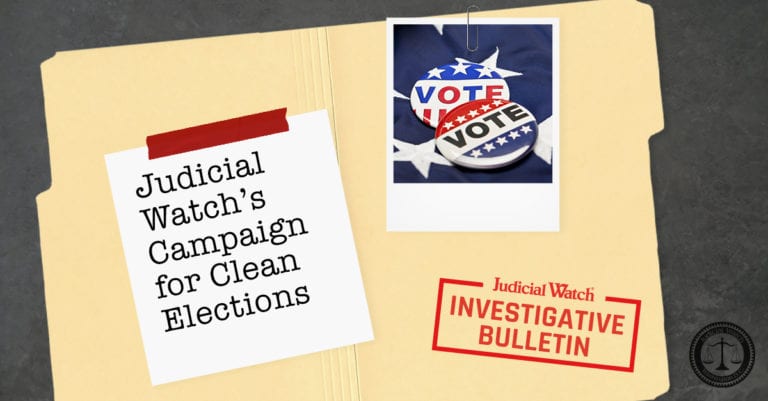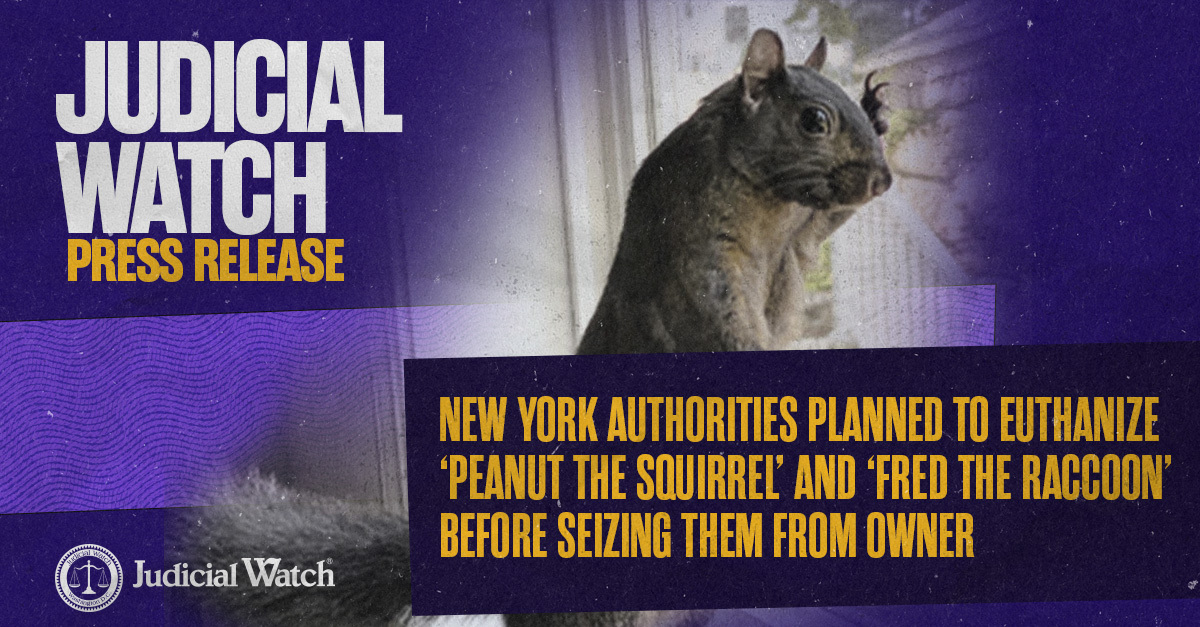
Judicial Watch’s Campaign for Clean Elections

With the presidential race heating up, election integrity is back in the news. Cheaters gonna cheat and there’s lots of ways to steal an election—dirty voter rolls, mail-in voting, and “ballot harvesting” are three areas ripe for abuse.
Judicial Watch is the national leader in election integrity education and litigation. The very notion of voter fraud is steeped in partisan bickering, but Judicial Watch President Tom Fitton insists electoral abuse is not “a Right-Left issue” at all. The Right may be leading the fight on election fraud, but “if you’re a Leftist Democrat trying to take on an incumbent in a corrupt jurisdiction,” Fitton says, “voter fraud can keep you from gaining traction as well.”
Judicial Watch is cleaning up dirty voter rolls across the nation. States are required by the National Voter Registration Act to remove so-called “inactive voters” from registration rolls if they do not respond to an address confirmation notice and then fail to vote in the next two general federal elections. Many “inactive voters” do this because, well, they’re dead. Or they have moved away.
Why does this matter? Leaving the names of inactive voters on registration rolls creates opportunities for fraud, such as dead people voting or double voting. Critics argue that these concerns are overblown, but sometimes it only takes a few votes to swing an election.
And dirty voter roll numbers are not small. Here’s what we have uncovered:
In North Carolina, a Judicial Watch investigation revealed nearly one million inactive voters on its rolls. That’s about 17% percent of North Carolina’s total voter registration. Earlier this month, we sued North Carolina to clean up its act.
Last week in Maryland, a federal judge ordered Montgomery County to turn over its voter rolls to Judicial Watch for analysis. Judicial Watch asked for the rolls after it determined that county registrations had exceeded 100% of its age-eligible citizenry. Read more about the Maryland case here.
We uncovered 1.6 million inactive voters on California voting rolls. In 2017, we sued California and Los Angeles County to force a cleanup. Our investigation found that Los Angeles County had more voter registrations on its rolls than actual voting age citizens in the county, and that the entire state had a voter registration rate of 101% of age-eligible citizens. Last year, California capitulated, settling our lawsuit and agreeing to remove inactive voters from its rolls.
We’ve been working to clean up Ohio voting rolls since 2012. In 2018, a Supreme Court decision upheld an Ohio voter-roll cleanup that resulted from settlement of a Judicial Watch lawsuit. The lawsuit found that the number of people listed on voter registration rolls in three Ohio counties exceeded 100% of the total voting age population.
We took on Kentucky. Our investigation found that 48 Kentucky counties—40% of the state total—had more registered voters than citizens over the age of 18. Statewide, we noted, the registration rate was higher than 100% of its age-eligible population. We sued and won: a federal court directed Kentucky to clean up its rolls. Indiana also agreed to clean up its rolls after Judicial Watch launched an investigation.
In February, we announced that our investigation in Iowa found 18,000 extra names on voter rolls. Eight Iowa counties had more voter registrations than voting age citizens. “Dirty voting rolls can mean dirty elections,” Tom Fitton noted. Iowa was apoplectic, but offered no evidence that our count was incorrect.
And in a major new development, Judicial Watch announced in January that we found at least another 2.5 million extra names on voter rolls across the country. A Judicial Watch analysis of data released by the U.S. Election Assistance Commission found that there are 378 counties in the U.S. that have more voter registrations than citizens old enough to vote. The 378 counties had a combined 2.5 million extra registrants over the 100%-registered mark. We’ve notified 19 counties in five states—California, Pennsylvania, North Carolina, Colorado, and Virginia—that we intended to sue unless they take steps to clean up their voter rolls. Stay tuned.
Meanwhile, for more on our efforts to clean up dirty voter rolls, here’s a discussion with Tom Fitton and Judicial Watch Election Integrity Initiative Director Bob Popper.
***
Micah Morrison is chief investigative reporter for Judicial Watch. Follow him on Twitter @micah_morrison. Tips: mmorrison@judicialwatch.org
Investigative Bulletin is published by Judicial Watch. Reprints and media inquiries: jfarrell@judicialwatch.org
















